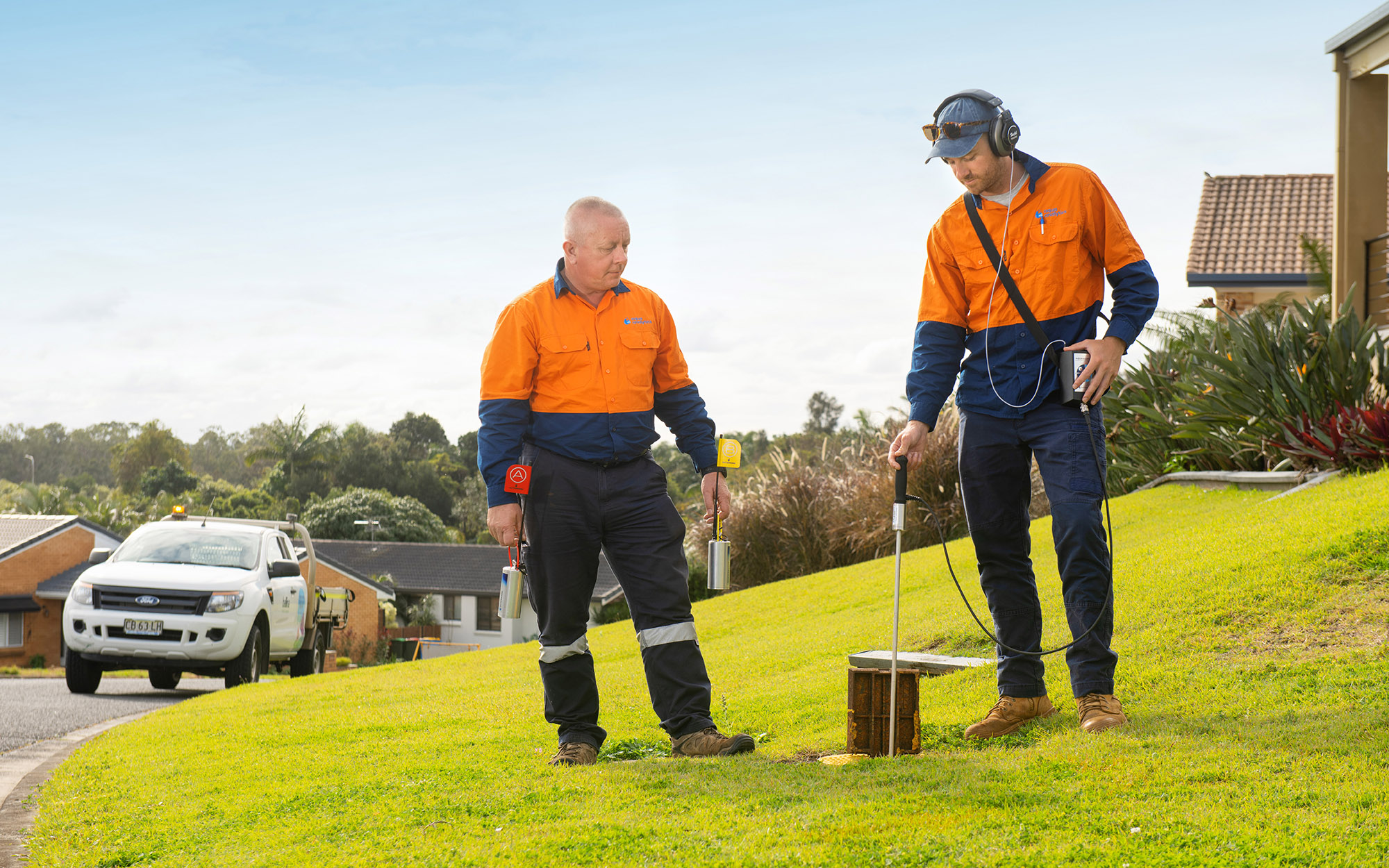Efficient use of water contributes to the sustainability of long-term supplies, builds resilience to drought and improves the readiness to respond to future extremes in weather. Conservation practices are important to manage ongoing water needs of NSW communities, and investments in water system efficiency and conservation maximise the value of water resources.
What we have delivered in 2022-2023
Water Efficiency Program
Addressing network leakage and water loss is a key priority of the Water Efficiency Program and over the reporting period the department awarded grants to 13 local water utilities to implement approaches to reduce non-revenue water in regional NSW. The projects are co-funded with local water utilities and focus on capacity building, water pressure management leakage control, metering and non-revenue water management.
Through the active leak detection program, the department has engaged specialist leak detectors to work closely with local water utilities across regional NSW. To date, over 50 council areas have participated with more than 11,850 km of local water utility water mains surveyed for leaks. Around 65% of detected water main leaks have been repaired by local water utilities saving 7550 ML of water.
Addressing water loss
The department has partnered with the Central NSW Joint Organisation and its member councils to reduce non-revenue water loss and increase water loss maturity. As well as delivering key projects that focus on pressure management, bulk metering and leak reduction, the partnership is co-designing a regional water loss management approach that can be replicated elsewhere. The approach will combine local expertise with expert know-how to sustainably reduce water supply network leakage.
Building capacity in schools to improve water efficiency
In collaboration with the Department of Education, work is underway to raise the profile of water efficiency of government buildings through a co-designed trial to address the gap in water efficiency knowledge and education. During the reporting year, phase 1 of the trial was delivered. This phase included the upskilling of environmental Educators to deliver water efficiency education in 30 schools across the state.
Phase 2 of the program is currently underway for 2023 - 2024 with the aim of embedding the program into the Department of Education’s sustainability initiatives to achieve a long-term commitment to water efficiency education. Ten Environmental Education Centres will collaborate and refine the program to mentor teachers and students across 40 schools to build the necessary skills in water audits, developing water saving actions plans and initiating water saving projects within their schools.
In November 2022, the department also published a suite of primary school water efficiency teaching resources including lesson plans, presentations and worksheets. A printed sample of these resources, along with educational games for the class, was sent to 1300 regional primary schools.
NABERS
The department is also partnering with the National Australian Build Environment Rating System (NABERS) to help customers measure and manage their water. During the reporting period, the Water Starters Initiative delivered first-time water ratings to 70 buildings, with an expected combined annual water saving of 41.5 ML/y. As part of this initiative, NABERS developed a free online training course to assist assessors, and anyone with an interest in sustainability, to learn practical techniques for improving their ability to influence and motivate others to implement sustainability initiatives such as water efficiency.
Water use research
The department is funding research to better understand the water use and water saving potential of evaporative air coolers. Highlighted as a key opportunity during the last drought, local water utilities raised this as a key water efficiency knowledge gap. Preliminary analysis suggests that evaporative air coolers can use up to 100 litres of water per hour.
The research findings will be applicable across much of the state and valuable to reduce water use during the critical peak, hot, dry seasons and during droughts.
The project plan was finalised in 2022 - 2023 in partnership with Institute for Sustainable Futures – University of Technology Sydney, Taggle – Smart meter providers, and Tamworth Regional Council.
NSW Water Efficiency Framework
Strategic projects undertaken during the reporting period include publishing the NSW Water Efficiency Framework and self-assessment tool in October 2022. The framework is a best-practice guide to developing and delivering water efficiency. It provides clear steps to design, deliver and review water efficiency programs. Government, water utilities, councils and large businesses will find guidance on implementing water efficiency initiatives no matter what their level of maturity.
Contribution to water strategies
- NSW Water Strategy
- A new state-wide Water Efficiency Framework and Program
- Regional water strategies
- Do more with less
- Ensure water resource development and use is sustainable and equitable
- Sustainable water resources for new and exiting water users
- Greater Sydney Water Strategy actions
- A concentrated focus on water conservation and efficiency
- Lower Hunter Water Security Plan
- Making the most of what we’ve got
